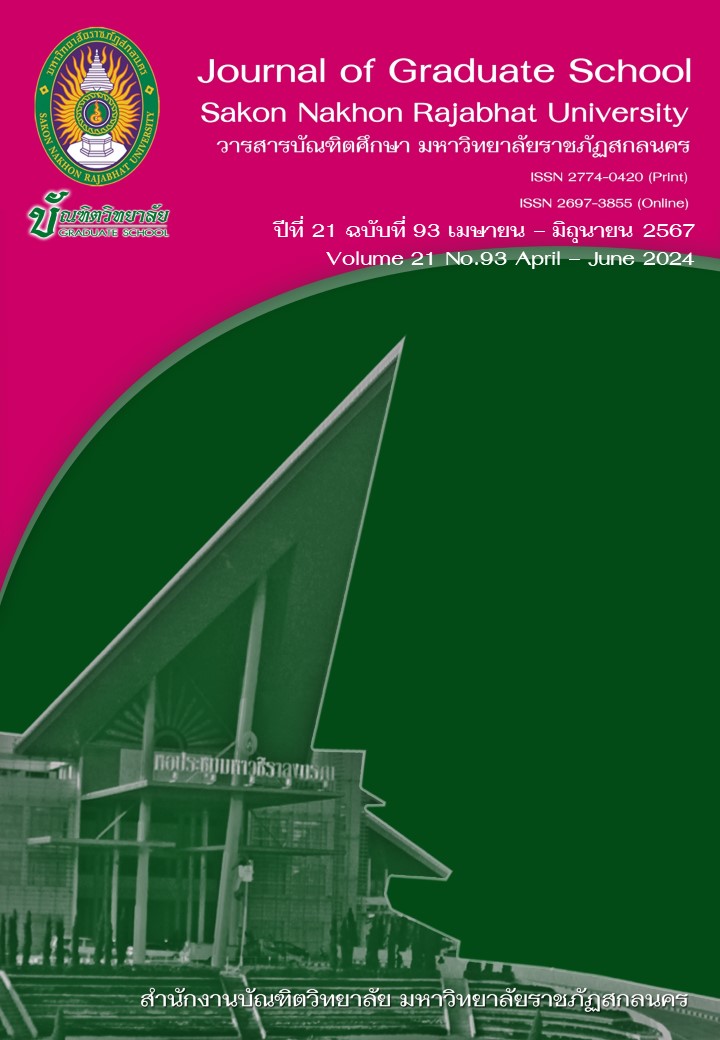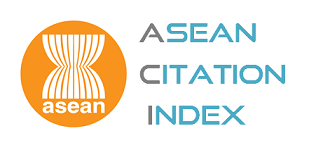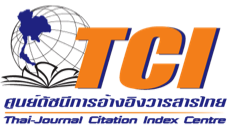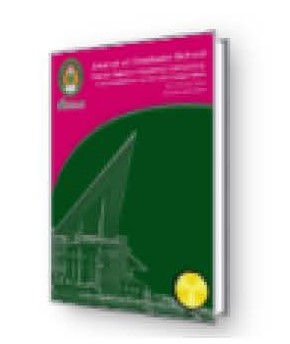SUPER LEADERSHIP OF SCHOOL ADMINISTRATORS AFFECTING THE EFFECTIVENESS OF SCHOOL ADMINISTRATION UNDER THE SECONDARY EDUCATIONAL SERVICE AREA OFFICE NAKHON PHANOM
Keywords:
Super Leadership, Effectiveness of School Administration, The Secondary Educational Service Area Office Nakhon PhanomAbstract
The purposes of this research were to 1)examine and compare the super leadership of school administrators, classified by status and school sizes, 2) examine and compare the effectiveness of school administration, classified by status and school sizes, 3) determine the relationship between the super leadership of administrators and the effectiveness of school administration, and 4) identify the predictive power for the super leadership of administrators affecting the effectiveness of school administration. The sample consisted of 259 participants, including 78 school administrators and 181 teachers. The sample size determination used a 15 percent criterion and was selected through multi-stage random sampling. The research instruments included two sets of 5–rating scale questionnaires: 1) a set of questionnaires about the super leadership of school administrators, with the Index of Item Congruence (IOC) between 0.80 and 1.00, the item discrimination from .53 to 93, and the reliability of .99; and 2) a set of questionnaires about the effectiveness of school administration, with the Index of Item Congruence (IC) between 0.80–1.00, the item discrimination between .34–.94, and the reliability of .98. The statistics employed were percentage, mean, standard deviation, t-test for Independent Samples, One–Way ANOVA, Pearson's product-correlation coefficient, and Stepwise multiple regression analysis.
The research results revealed that:
1. The super leadership of school administrators was overall at the highest level. When classified by status, there were no differences in their leadership level. However, when examining self–leadership on an individual basis, differences were observed at the .05 level of significance. In terms of school sizes, the overall super leadership of school administrators showed no differences.
2. The effectiveness of school administration was overall at the highest level. In terms of status and school sizes, there were no differences.
3. The super leadership of school administrators and the effectiveness of school administration revealed a fairly high level of positive correlation at the .01 level of statistical significance.
4. The four variables of super leadership of school administrators affecting the effectiveness of school administration under the Secondary Educational Service Area Office Nakhon Phanom, namely facilitation (X7), self-leadership (X1), leadership in team building (X6), and rewarding and reprimanding creatively (X5). These aspects could jointly predict at 68 percent. The regression equation of raw scores and standardized scores could be written as follows:
Y' = .91+.30X7+.19X1+.16X6+.14X5
Zy' =.35 Z7+.24 Z1+.19Z6+.17Z5
References
กระทรวงศึกษาธิการ. (2556). คู่มือบริหารสถานศึกษาขั้นพื้นฐานที่เป็นนิติบุคคล. กรุงเทพฯ: องค์การรับส่งสินค้าและพัสดุภัณฑ์.
กิจจา กสิกรรม. (2561). ภาวะผู้นำเหนือผู้นำของผู้บริหารโรงเรียนมัธยมศึกษาในจังหวัดชลบุรี สังกัดสำนักงานเขตพื้นที่การศึกษามัธยมศึกษา เขต 18. งานนิพนธ์ กศ.ม. ชลบุรี: มหาวิทยาลัยบูรพา.
เกรียงศักดิ์ เจริญวงศ์ศักดิ์. (2561). Super Leadership: สุดยอดภาวะผู้นำ. กรุงเทพฯ: ซัคเซส มีเดีย.
จรินทร์ อุตสาหะ. (2564). ภาวะผู้นำของผู้บริหารสถานศึกษาที่ส่งผลต่อการนิเทศภายในสถานศึกษาของสำนักงานส่งเสริมการศึกษานอกระบบและการศึกษาตามอัธยาศัยภาคตะวันออกเฉียงเหนือ. วิทยานิพนธ์ ค.ม. จันทบุรี: มหาวิทยาลัยราชภัฏรำไพพรรณี.
เฉลิมชัย หาญกล้า. (2559). การบริหารการศึกษาหลักการแนวคิดทฤษฎีสู่การปฏิบัติ. กรุงเทพฯ: แดเน็กซ์อินเตอร์คอร์ปอเรชั่น.
ชรินทร์ทิพย์ วงศ์ธรรม. (2565). ภาวะผู้นำเหนือผู้นำของผู้บริหารที่ส่งผลต่อประสิทธิผลการบริหารงานโรงเรียน สังกัดสำนักงานเขตพื้นที่การศึกษามัธยมศึกษาสกลนคร. วิทยานิพนธ์ ค.ม. สกลนคร: มหาวิทยาลัยราชภัฏสกลนคร.
ไชยา ภาวะบุตร. (2560). หลักทฤษฎีและปฏิบัติการบริหารการศึกษา. สกลนคร: มหาวิทยาลัยราชภัฎสกลนคร.
ดาวรุวรรณ ถวิลการ. (2558). ภาวะผู้นำเหนือผู้นำแบบภาวะผู้นำแห่งศตวรรษที่ 21. วารสารบริหารการศึกษา มหาวิทยาลัยขอนแก่น. 11(2), 23–25.
เทพรัตน์ ศรีคราม. (2562). ภาวะผู้นำเหนือผู้นำของผู้บริหารสถานศึกษา สังกัดสำนักงานเขตพื้นที่การศึกษามัธยมศึกษา เขต 32. วิทยานิพนธ์ ค.ม. บุรีรัมย์: มหาวิทยาลัยราชภัฏบุรีรัมย์.
ธร สุนทรายุทธ. (2556). ทฤษฎีองค์การและพฤติกรรม: หลักการทฤษฎีการวิจัยและปฏิบัติการทางการศึกษา. กรุงเทพฯ: บริษัท เนติกุลการพิมพ์จำกัด.
ธัญญ์นภัส มณีพันธุ์วงศ์ ธีรวุธ ธาดาตันติโชค และพิชญาภา ยืนยาว. (2564). ภาวะผู้นำเหนือผู้นำของผู้บริหารสถานศึกษาที่ส่งผลต่อ สมรรถนะของครูไทยในศตวรรษที่ 21 สังกัดสำนักงานเขตพื้นที่การศึกษาประถมศึกษานครปฐม เขต 1. วารสารการบริหารการศึกษาและภาวะผู้นำ มหาวิทยาลัยราชภัฏสกลนคร, 9(36), 133–143.
นลธวัช ยุทธวงศ์. (2564). ภาวะผู้นำเหนือผู้นำของผู้บริหารสถานศึกษา สังกัดอาชีวศึกษาจังหวัดกำแพงเพชร. วารสารการบริหารนิติ บุคคลและนวัตกรรมท้องถิ่น, 7(7), 150–164.
บุญชม ศรีสะอาด. (2560). การวิจัยเบื้องต้น. (พิมพ์ครั้งที่ 10). กรุงเทพฯ: สุวีริยาสาส์น.
เมรินทกาล พัฒนทรัพย์พิศาล. (2560). ปัจจัยทางการบริหารที่ส่งผลต่อประสิทธิผลโรงเรียน สังกัดสำนักงานเขตพื้นที่การศึกษามัธยมศึกษา เขต 23. วิทยานิพนธ์ ค.ม. สกลนคร: มหาวิทยาลัยราชภัฏสกลนคร.
ลออ วิลัย. (2557). ภาวะผู้นำเหนือผู้นำของผู้บริหารสถานศึกษากับประสิทธิผลการบริหารงานวิชาการของสถานศึกษาระดับการศึกษาขั้นพื้นฐาน. วารสารวิชาการมหาวิทยาลัยปทุมธานี, 6(2), 143–150.
วัฒนา จันทนุปาน. (2561). ปัจจัยที่ส่งผลต่อประสิทธิผลของการบริหารสถานศึกษา สังกัดองค์กรปกครองส่วนท้องถิ่นเขต ภาคเหนือตอนบน. วารสารวิทยาลัยนครราชสีมา, 12(1), 66.
วันเพ็ญ บุรีสูงเนิน. (2552). ปัจจัยที่ส่งผลต่อความสำเร็จในการบริหารสถานศึกษาขั้นพื้นฐาน เขตพัฒนาพื้นที่ชายฝั่งทะเลตะวันออก. ดุษฎีนิพนธ์ ค.ด. กรุงเทพฯ: มหาวิทยาลัยศิลปากร.
วิโรจน์ สารรัตนะ และคณะ. (2555). แนวคิด ทฤษฎี และประเด็นเพื่อการบริหารทางการศึกษา. กรุงเทพฯ: ทิพย์วิสุทธิ์.
________. (2557). ภาวะผู้นำทฤษฎีและนานาทัศนะร่วมสมัยปัจจุบัน. กรุงเทพฯ: ทิพย์วิสุทธิ์.
สำนักงานเขตพื้นที่การศึกษามัธยมศึกษานครพนม. (2566). แผนปฏิบัติการประจำปีงบประมาณ พ.ศ. 2566. นครพนม: กลุ่มนโยบายและแผน.
สุกัญญา แช่มช้อย. (2555). การบริหารสถานศึกษาขั้นพื้นฐานเพื่อพัฒนาทักษะการคิดเชิงนวัตกรรมของครู. กรุงเทพฯ: จุฬาลงกรณ์ มหาวิทยาลัย.
สุชาดา บินยามัน. (2558). ภาวะผู้นำเหนือผู้นำที่ส่งผลต่อประสิทธิผลของโรงเรียนบ้านฉางกาญจนากุลวิทยา จังหวัดระยอง สังกัดสำนักงานเขตพื้นที่การศึกษามัธยมศึกษา เขต 18. วิทยานิพนธ์ กศ.ม. ชลบุรี: มหาวิทยาลัยบูรพา.
สุชาติ เสนาสี และคณะ. (2566). องค์ประกอบภาวะผู้นำเหนือผู้นำของผู้บริหารสถานศึกษาขั้นพื้นฐาน. วารสารวิจยวิชาการ, 6(1), 110-112.
สุภาวดี บุตตะวงค์. (2560). ความสัมพันธ์ระหว่างภาวะผู้นำเหนือผู้นำของผู้บริหารสถานศึกษากับประสิทธิภาพของโรงเรียน สังกัดสำนักงานเขตพื้นที่การศึกษาประถมศึกษาจันทบุรี เขต 1. วิทยานิพนธ์ กศ.ม. ชลบุรี: มหาวิทยาลัยบูรพา.
อมรา ไชยดำ. (2559). ประสิทธิผลของสถานศึกษาในสังกัดสำนักงานเขตพื้นที่การศึกษามัธยมศึกษา เขต 27. วารสารบัณฑิตศึกษา มหาวิทยาลัยราชภัฏสกลนคร, 13(61), 209-224.
Flavia L. Eldemire. (2004). Super leadership: the impacts and implications for public education. Doctoral Dissertations 1896 - February 2014. 5514.
Hoy, Wayne K, & Miskel, Cecil. G. (2013). Educational Administration: Theory Research and Practice. (7th ed). New York: McGraw–Hill.
Lunenburg, Fred C & Allan C. Ornstein. (2012). Educational Administration: Concepts and Practices. California: SAGE Publications Ltd.
Manz, C. C & Sims, H. P. (1991). The New Super Leadership Leading Other to Lead Themselves. San Francisc: Berreit–Koehler.
Morphet. (2007). The Administration of the School Administrators. Dissertation Abstract International, 34(03), 705–A.
Downloads
Published
How to Cite
Issue
Section
License
Copyright (c) 2024 Journal of Graduate School Sakon Nakhon Rajabhat University

This work is licensed under a Creative Commons Attribution-NonCommercial-NoDerivatives 4.0 International License.
บทความทุกบทความที่ตีพิมพ์ในวารสารบัณฑิตศึกษา มหาวิทยาลัยราชภัฏสกลนคร ถือว่าเป็นลิขสิทธิ์ของบัณฑิตวิทยาลัย มหาวิทยาลัยราชภัฏสกลนคร










